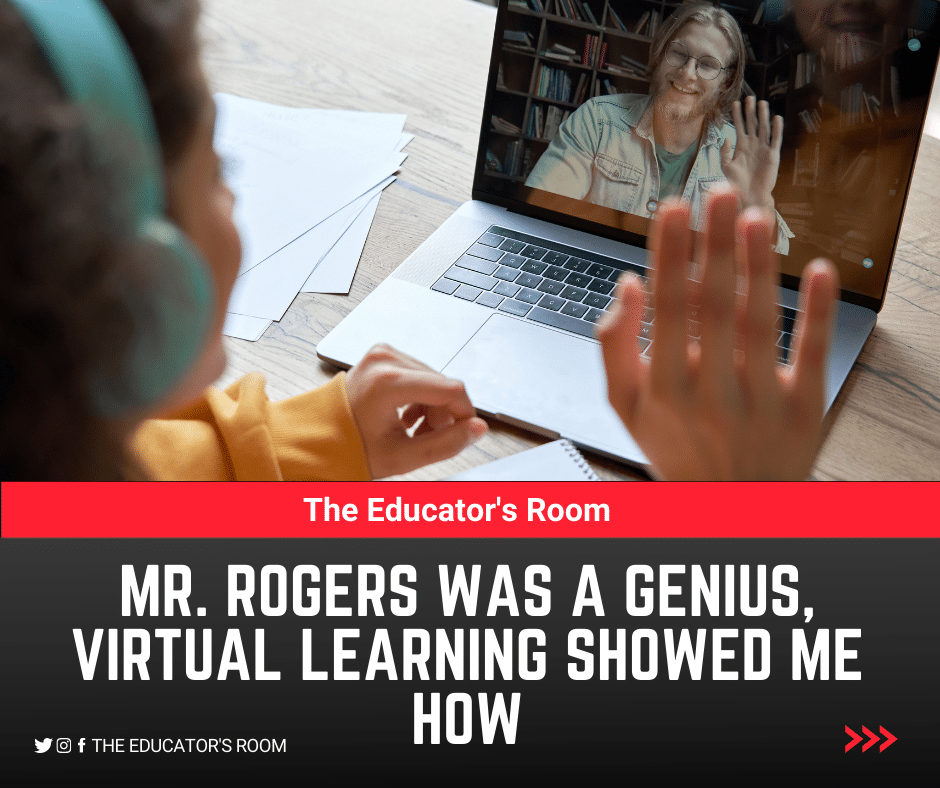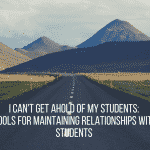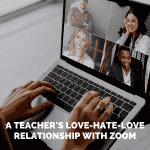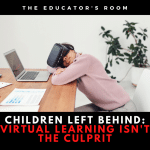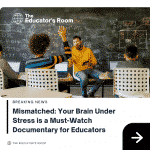By Thomas Courtney
When I was a child, Mr. Rogers taught me how I was a part of my community through the magic of TV. Mr. Rogers would take us to the post office to see how mail was sorted. He would take us to a factory to see how things like tomatoes were canned and shipped. I know that I learned a lot about my community in those small journeys.
When distance learning began, I thought perhaps that one of the bonuses to being virtual would be an ability to recreate that for my elementary school students. I used videos from youtube-I even made videos of myself. Something told me that this unlimited supply of visual and verbal experience would blow what Mr. Roger’s gave us right out of the water–that technology had advanced far beyond the small neighborhood world that Fred Rogers made for us. I just needed to find the right media to explain the solar system, the water cycle, to explain good nutrition. Right?
I was so wrong.
It has been over six months since my class became an online experience, and recently I’ve made a discovery that has profoundly changed my teaching now and hopefully will continue to change it after our pandemic ends: Mr. Rogers, you were even more ahead of your time than we thought.
You see, I have come to realize that Mr. Roger’s adventures in the neighborhood weren’t about using the power of TV. It wasn’t about expertly crafted videos. It was about using the power of relationships–relationships that all of us have. Relationships that can be forged and developed even though the computer and the best part is that these relationships can be made even easier through distance learning.
A weakness into a strength
The moment it hit me could only have happened in a virtual class. My classroom partners with a program at UCSD to bring tutors into the classroom as part of a child development course. I was delighted that one of the tutors would be visiting from Hong Kong. When Ms. Carina showed us the night sky through her own window and explained that it was past her bedtime–we were just waking up– suddenly kids wanted to revisit my globe lesson. This online enthusiasm is rarer online for me and I was smiling ear to ear. I quickly reached for the globe and it was a teachable moment city! Later that week, the classic planetary rotation and revolution lesson became the easiest lesson I taught. Kids were fascinated that someone they could talk to in real time was technically living in “tomorrow.” But it wasn’t the phenomenon. It was the relationship. The chat filled up with questions for Ms. Carina. “Is it weird seeing us just getting up? How dark is it there?” And they wanted to know other things. What else was different for her? Someone asked about other planets. What was a day like on Mars? What if Ms. Carina lived on Mercury and we were on some kind of planetary space base on the other side?
Class is stranger than fiction sometimes, isn’t it?
And it made sense to me then! What was the biggest weakness in my instruction–not being able to be present with the students–suddenly became my greatest strength! We could go anywhere! But more importantly, we could meet with anyone too! Who else could I introduce them to? Who else could we get to know? Suddenly, I realized my neighborhood was a lot larger than theirs. And I had a way to introduce them to these neighbors.
My good friend Franz led a live introduction to my unit on adding and subtracting decimals. He has to use quite a bit of math and chemistry to make a nice syrah. Karen, a friend from my writing group, jumped on my newspaper club link to tell us why she writes, motivating students to tell what is most important to them. “I met an author today,” said a student in the chat, and the smile on her face in the screen told me it didn’t matter that it wasn’t in person. And it wasn’t because I found a video on youtube.
And this is just the beginning.
You see, what Mr. Rogers must have known was that TV magic could take us to all of these places, and that was special. But what was far more special than that was the relationships he had, the relationships we built with these people. It was something I had never considered.
But I now see it’s true. My students have a friend who lives in Hong Kong. When they go to sleep, she is just waking up. My students know a person who makes wine in Lodi, California. They know that the agricultural process that supplies their food is a science that feels like an art. My writers are friends with an author who would not have been able to meet them if it were not for the magic of Zoom.
And I would never have seen the magic that isn’t in a TV, isn’t in a youtube video, nor is it on a video conferencing platform. It’s in the power of relationships that technology can enhance, but that it cannot create without us realizing what is so special in the first place.
Mr. Rogers knew that long before any of this when he asked us to be his neighbor, and he used the power of TV to make us feel that way. We can use the power of video conferencing software to bring the same magic to our classrooms, now and when the pandemic ends. All we have to do is ask.
“Won’t you be our neighbor?”
Thomas Courtney is a twenty-year educator and guide teacher in San Diego, California.

